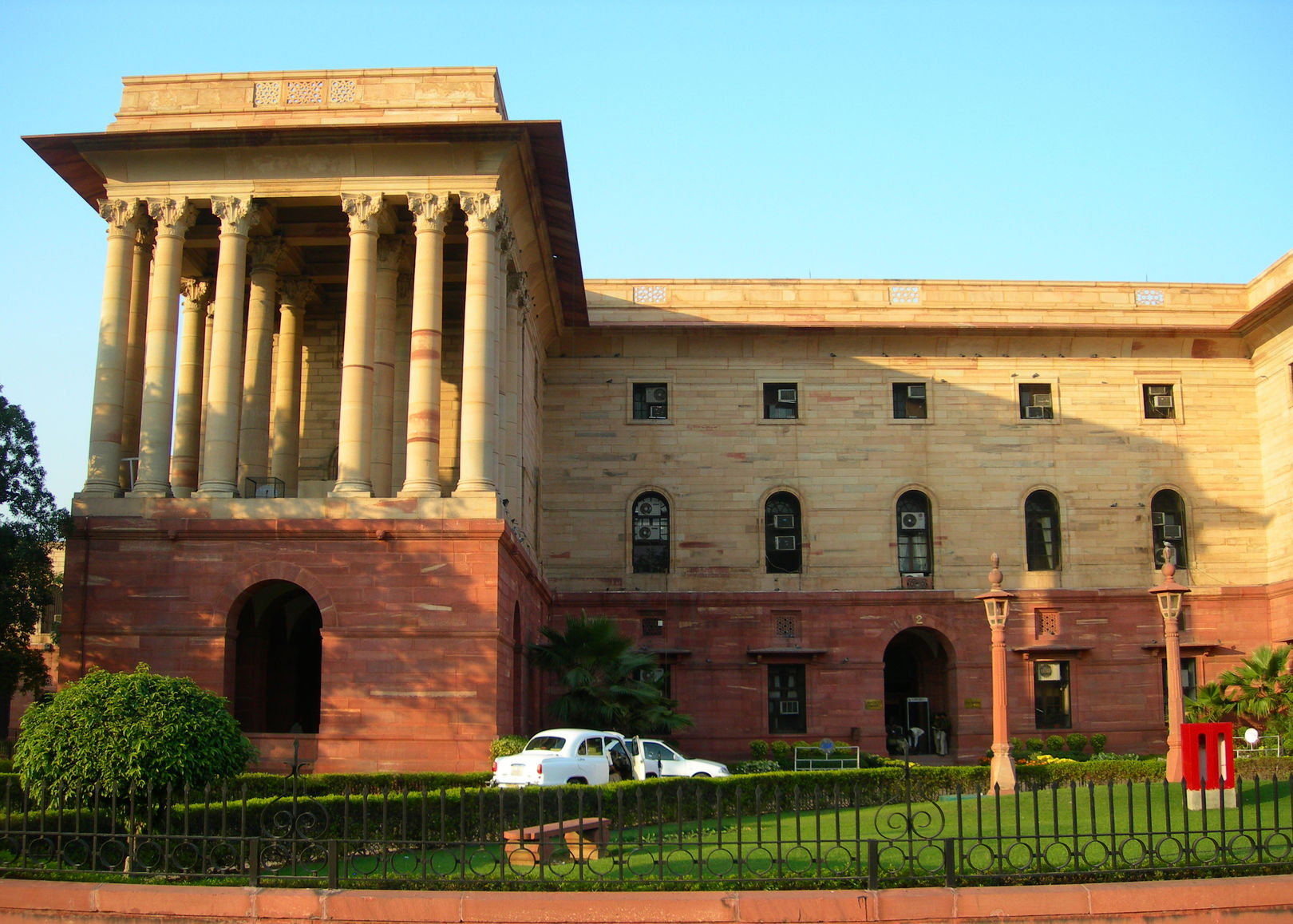Introduction
The Supreme Court, in a recent judgment passed in Vidarbha Industries Power Limited v. Axis Bank Limited1, adjudicated upon whether Section 7(5)(a) of the Insolvency and Bankruptcy Code, 2016 (“IBC“) is a mandatory or discretionary provision i.e. on an application for initiating Corporate Insolvency Resolution Process (“CIRP“) by a financial creditor.
The SC, speaking through Justice Indira Banerjee, observed that the existence of a debt and default merely give a financial creditor the right to apply for initiating CIRP. The Adjudicating Authority on such application must apply its mind to a spectrum of relevant factors, including the financial health and viability of the corporate debtor, and the feasibility of CIRP – considering that the object of the IBC is also to try and revive a company/debtor and “not spell its death knell”.[1] The fact that the Legislature has used the word “may” in Section 7(5)(a), while in other provisions (including in Section 9(5) of the IBC, dealing with initiating CIRP by an Operational Creditor), it has used the word “shall”, indicates that the two words are intended to convey different meanings. Thus, Section 7(5)(a) gives the Adjudicating Authority the discretion not to admit even where the ingredients are satisfied.
Relevant Facts
Vidarbha is a “generating company” u/s. (28) of the Electricity Act, 2003. In 2013, the Maharashtra Electricity Regulatory Commission (“MERC“) granted approval to a company to procure power from one of Vidarbha’s units, and an agreement to that effect was executed.
MERC disallowed a large portion of the fuel costs claimed and capped the tariff for FYs 2016-2017 to 2019-2020, resulting in a dispute between Vidarbha and MERC in relation to determination of tariff. Vidarbha filed an appeal before the Appellate Tribunal for Electricity (“APTEL“), challenging MERC’s decision. APTEL allowed the appeal and consequently a sum of INR 1,730 crore became payable to Vidarbha. Thereafter, MERC filed a civil appeal before the Supreme Court in 2017, challenging the same. This appeal is presently pending before the apex court.
In 2020, Axis Bank Limited (“ABL“) approached the National Company Law Tribunal (“NCLT”) and filed an application u/s 7(2) of the IBC for initiating CIRP against Vidarbha for non-payment of its dues, amounting to INR 553 crore. Vidarbha contended that its inability to repay its debt to ABL was directly attributable to the non payment of INR 1,730 crore by MERC. The liability of MERC to pay the said amount was pending adjudication before the Supreme Court in a civil appeal filed by MERC and therefore, Vidarbha sought a stay of the proceedings before the NCLT until disposal of the said appeal.
The NCLT dismissed Vidarbha’s application and refused to stay CIRP proceedings, with the observation that the Adjudicating Authority is required only to see if a debt exists and whether the corporate debtor has defaulted in making the requisite repayments – where both these requirements are satisfied, it would instantly trigger corporate insolvency. The NCLT observed that timely resolution of a corporate debtor who is “in the red” is necessary. Vidarbha then filed an appeal before the National Company Law Appellate Tribunal (NCLAT) and this appeal was also dismissed in March 2021, on the ground that there was no legal infirmity in the NCLT’s order.
Hence, Vidarbha preferred an appeal u/s. 62 of the IBC before the SC, against the judgment of NCLAT dated 02.03.2021.
Contentions of the Parties
Before the Supreme Court, Vidarbha primarily contended that it was unable to pay its dues to Axis Bank because of pendency of the appeal against APTEL’s order, under which it was entitled to Rs 1,730 crore. Further, it was submitted that Section 7(5)(a) of the IBC, r/w Rule 11 of the National Company Law Tribunal Rules, 2016, provides that the Adjudicating Authority “may” reject an application even if a debt exists for any reason that it deems fit, to meet the ends of justice, and to achieve the objective of the IBC – a revival of the company and value maximisation. If the legislature intended differently, it would have used the word “shall”, therefore, Section 7(5)(a) is discretionary in nature[2].
On the other hand, ABL relied on the judgment of the SC in Swiss Ribbons Private Limited and Anr. v. Union of India and Ors[3]., to argue that the aim of the IBC is to set up a legal framework that facilitates timebound resolution of insolvency and bankruptcy. It submitted that when there is a default in payment of a debt by a corporate debtor, the Adjudicating Authority is obliged to admit an application for CIRP proceedings, sought by a financial creditor.
Findings of the Hon’ble Supreme Court:
The SC categorically held that S.(7)(5)(a) of the IBC is discretionary and not mandatory in nature. It emphasised that the object of the IBC is to first try and revive the company. The SC observed that while the process must be resolved expeditiously, the viability and overall financial health of the corporate debtor must not be lost sight of. When the corporate debtor has an order in its favour, which, if implemented, would allow such debtor to pay its dues, then the Adjudicating Authority, i.e., the NCLT is not divested of its discretionary power under Section 7 of the IBC. It may or may not admit the application of a financial creditor. The NCLT’s jurisdiction is not restricted to examining the existence of a debt and a default to trigger CIRP. The SC reiterated that the existence of a financial debt and default in payment of dues merely gives the financial creditor the right to apply for the initiation of CIRP. The Adjudicating Authority is required to further apply its mind and consider multiple relevant factors, including the feasibility of initiation of CIRP and the viability of the corporate debtor under its existing management.
The SC also held that the legislative intent is construed in accordance with the language used in the statute. If the legislature intended the concerned provision to be mandatory in nature, it would have used the word “shall”. The judgment in Lalita Kumari v. Government of Uttar Pradesh and Ors.,[4] was relied upon to emphasise that the first principle of interpretation of statutes is the rule of literal interpretation. It further illustrated the intent behind the use of both “may” and “shall” by observing that the legislature has used the word “may” when referring to the duty of the Adjudicating Authority in an application for CIRP initiated by a financial creditor [u/s.7(5)(a)], but used the word “shall” when referring to an application for the same process being initiated by an operational creditor [u/s.9(5)(a)].
The SC differentiated the Swiss Ribbons case by identifying that the case involved a challenge to the vires of the IBC. It did not consider whether S.7(5)(a) of the IBC was discretionary or mandatory and observed that the judgment was only a precedent on the question of law raised and decided and that the language in a judgement cannot be read like a statute.
The SC also noted that an award in favour of a Corporate Debtor cannot be disregarded by the Adjudicating Authority when deliberating on a S.7(5)(a) application – especially keeping in mind the facts and circumstances of the instant case. While Section 7(5)(a) confers a discretionary power on the Adjudicating Authority to admit or not admit an application of a financial creditor for initiation of CIRP, it was held that the NCLT had erred in altogether disregarding APTEL’s award in favour of Vidarbha. In the facts, the amounts payable to Vidarbha under APTEL’s award far exceeded the claim of the financial creditor, ABL. Further, the SC noted, in relation to a generating company that operated under statutory control, the impact of MERC’s appeal on the financial health and viability of Vidarbha would have to be an important factor to which the NCLT was required to apply its mind. The SC further observed that the IBC is not intended to penalise solvent companies, or companies that are temporarily defaulting in repayment of their financial debts, by resorting to CIRP proceedings.
Conclusion:
This decision of the Supreme Court in Vidarbha Industries (Supra) has introduced a degree of ambiguity, by way of granting discretionary powers in the course of admitting/ rejecting an application for initiation of CIRP under Section 7(5)(a). From a creditor perspective, even after the satisfaction of all conditions relevant for admission of an application under Section 7 of the IBC to initiate CIRP, the Adjudicating Authority may refuse to admit the petition in exercise of its discretion by considering factors that (a) may not be directly relevant to establishing a default; (b) may indeed be extraneous to the contract between the creditor and the debtor; and (c) may consist of considerations that the creditor does not even have direct knowledge of.

For further information, please contact:
Gyanendra Kumar, Partner, Cyril Amarchand Mangaldas
gyanendra.kumar@cyrilshroff.com
[2] Surendra Trading Company v. Juggilal Kamlapat Jute Mills Company Limited and Ors., (2017) 16 SCC 143.





